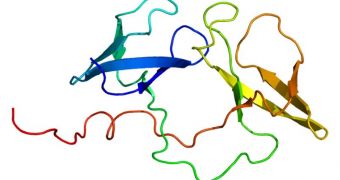One of the most common, inherited diseases that cause intellectual disability in children is the fragile X syndrome. For the past 20 years, geneticists studying the condition have known that it is caused by the so-called functional loss of the fragile X mental retardation protein (FMRP), which can be readily identified in the human brain. However, while the research showing the link is unquestionable, a number of mysteries remained as to how exactly FMRP regulates the neural pathways that are involved in higher mental functions, such as learning and memory.
The investigation is especially meaningful for the adult brain, researchers at the Emory University reveal, quoted by PhysOrg. One of the most significant conclusions that were reached following the study was that FMRP in fact appears to play a very important part in one of the most fundamental processes in our brains, called neurogenesis. This is the chain of reactions that eventually trigger the formation of new nerve cells throughout the cortex, even well into adulthood. This particular protein is involved with regulating this process, and its influence, or lack therefore, is immediately obvious.
For this research, scientists at the Emory School of Medicine collaborated with colleagues from the University of New Mexico School of Medicine. Details of their experiments and conclusions appear in the latest issue of the respected, open-access scientific journal PLoS Genetics, which is a publication of the Public Library of Science. The work was conducted on unsuspecting lab mice, but the group believes that the findings may translate to humans as well. The scientists also revealed that the FMRP acts on a number of other proteins, responsible for regulating adult neural progenitor cells (aNPC). These cells are the ones that create mature neurons in the adult brain, PhysOrg reports.
The team found that a lack of FMRP causes the aNPC to differentiate abnormally, and also to proliferate. This means that the overall number of new neurons decreases considerably, while the incidence of cases in which new nerve cells mature incorrectly increases. “We discovered that mice lacking the Fmr1 gene [which codes for FMRP] have a reduced number of new neurons in the dentate gyrus, and that FMRP-deficient neurons have reduced dendritic complexity and length. Both of these factors could lead to the learning and emotional disabilities associated with fragile X syndrome,” explains co-senior author Peng Jin, PhD, who is a EUSM assistant professor of human genetics.

 14 DAY TRIAL //
14 DAY TRIAL //